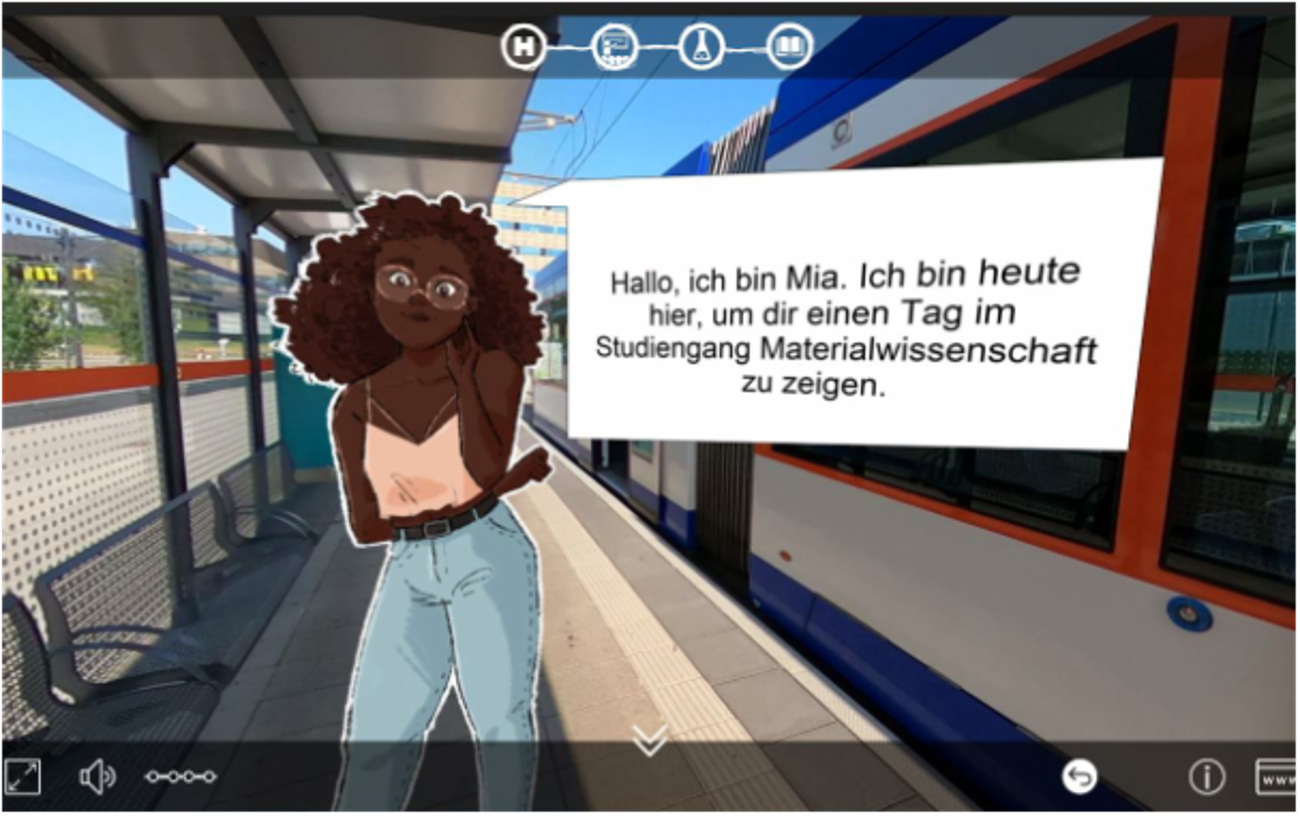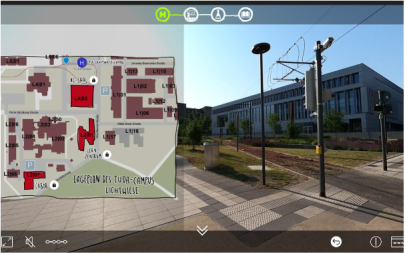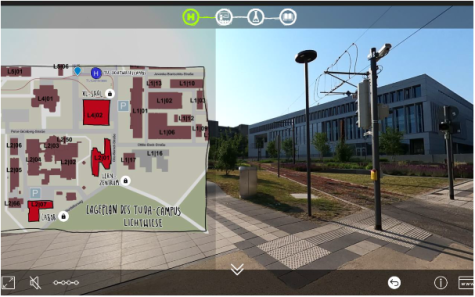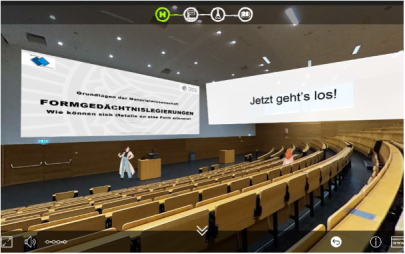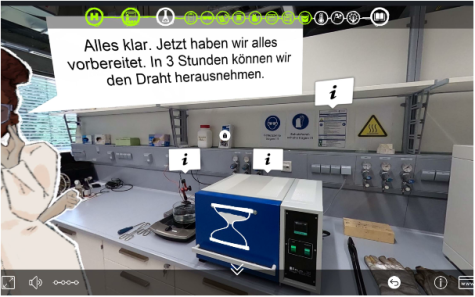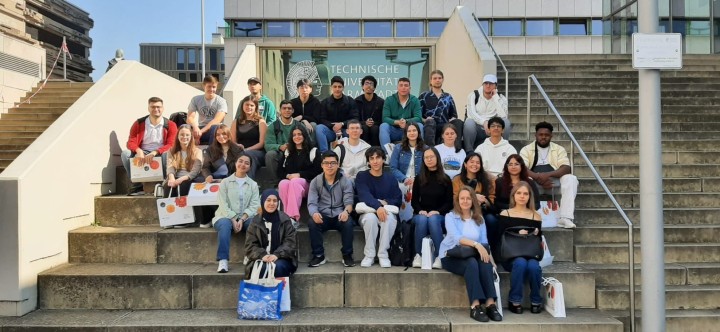Published: 28.01.2025
Mission Metal Memory: Interactive learning adventure with innovative tasks
The first game in this series, “Mission Metal Memory”, developed in collaboration with the Institute of Materials Science, has now been released. As in real everyday university life, the first task is to find your way around the campus and find your way to the lecture hall. The curriculum includes so-called shape memory alloys. These materials can be deformed but return to their original shape at the touch of a button. In the lecture, you will learn in compact form how this strange behavior can be explained, how important it is for various areas of application such as aerospace, medical technology or smartphones and how such materials can be produced. Then it's off to the virtual lab, where the knowledge you have just learned is put to the test: When should which step be carried out? How should which parameter be set to achieve the desired result?
Each experiment includes the preparation of a protocol: in the game, this is done in an entertaining way in the form of an interactive quiz that awaits the players in the Materials Science Learning Center. Here the comprehensive understanding of the topic is checked again and knowledge is consolidated.
A high degree of interactivity makes the learning process dynamic and appealing. Using the example of shape memory alloys, the players learn how to think and work in materials science. At the same time, they become familiar with the campus and get an idea of the processes involved in studying.
Interdisciplinary cooperation
The game was realized in close cooperation with various institutions at TU Darmstadt. The e-learning working group of the University Didactics Office (HDA) was responsible for the didactic design and technical implementation. Employees of the Institute of Materials Science were responsible for the content design. The expertise of the Central Student Advisory Service was also incorporated into the project. The games were developed as part of the joint project Future Learning Spaces (FueLS), which is dedicated to the didactic and technical design and creation of virtual teaching and learning scenarios using 360°, augmented and virtual reality technologies.
Material Science – The unknown key discipline
There are good reasons why the materials science course was chosen for the pilot project. Hardly any other discipline has such a large gap between its enormous relevance and lack of awareness. “MaWis”, as the students and researchers in this discipline call themselves, develop an in-depth understanding of material properties, their causes and how they can be influenced. This enables them to develop materials with improved or new properties. Such material innovations are the basis for future technologies, for example in the fields of energy, communication, mobility or health.
A window to the university – a window to the future
In times when digital formats are becoming increasingly important, the university is offering an innovative, target group-oriented opportunity to find out about study programs and get to know campus life at the same time. As a digital showcase, it also reflects the Darmstadt model of science communication, which aims to create a lively exchange with the public. This requires formats such as the Escape Game, which convey in a contemporary and easily accessible way how and what is researched, taught and learned at the TU.
Further games from the “TUDa Campus Quest” series are currently in development. 360° games on mechanical engineering, civil engineering and architecture are to be published soon.
About the game
The game “TUDa Campus Quest – Mission Metal Memory” is freely accessible via the following URL: https://www.mawi.tu-darmstadt.de/campusquest
It can be played in all common browsers. The application is optimized for playing on a desktop computer with a large screen.

